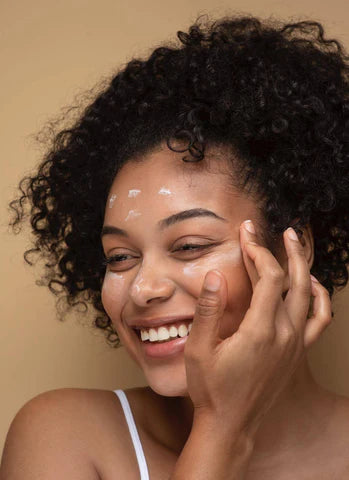Do you know what you’re putting on your skin and why?

We love our skincare, but do you know what’s in your skincare and what those ingredients are actually doing for your skin? Image by Freepik
Intro
Knowledge is a beautiful thing, but often it feels like, especially when it comes to skincare, there’s almost too much information out there.
14-step routines, gadget augmented routines, kitchen-ingredient-inspired routines – even no skincare routine. It’s hard to know if you’re doing too little, too much, or just the right amount.
What a lot of the medical profession are clueing in on (and I kept in mind while developing my Feel Confident skincare line), is that it’s knowing what your skin needs (and doesn’t) and being consistent (as opposed to throwing the latest trending product at it) is what seems to really make or break great skin.
Knowledge is powerful, but your first step should be getting to know your own skin, and how it behaves. There are four key points I think it’s super important to keep in mind when considering your largest organ and how it behaves.
The first thing you should take into consideration when evaluating your own skin is that genetics plays a huge role in how we all age. It’s difficult to put an exact number on it – everyone’s genetics are slightly unique and many, many genes affect how your skin behaves – but a good benchmark that gets thrown around is ~70% of our aging is genetically determined. That still leaves ~30% that’s determined by activities, lifestyle, and how you take care of your skin (and keep in mind smoking has disastrous effects), but to deny genetics is to set yourself up for unreasonable expectations.

Contrary to what the drugstore aisles, cosmetics companies, and multi-step skincare routines would have you believe, less is more when it comes to skincare. Read on to find out why. Image by Freepik
This is a point that the cosmetics industry isn’t too keen on, but where your skin is concerned less is way more. A lot of dermatologists are sounding the alarm on the trend of applying what often turns out to be too many products and the problems it can lead to – contact dermatitis, skin sensitivity, cosmetic acne, even chemical burns from too many acids. Everyone’s skin is delicate, and the skin barrier, an essential component that keeps pathogens, pollutants, and bacteria out, is much easier to damage than you might think.
So, the obvious takeaway is only use what your skin needs, but figuring that out? With all the products available, it can be a much bigger challenge than you might think. There’s an art to figuring out which products, ingredients, and treatments work best for your skin type.
I really wish I could wave a magic wand and give you a sure fire way to choose the products you need (many in the cosmetics world purport to do just that), but beyond ‘less is more’, figuring out what exact ingredients and products will work for you, especially if you manage a condition such as acne, psoriasis, and eczema… the most honest answer is it’s probably going to take some experimentation and potentially the help of a good dermatologist.
With that said, a mantra that’s worth keeping in mind while your experimentation (beyond less is more), is that prevention is key. Whether it’s managing breakouts, flare-ups, or sun damage, prevention is your goal and will always net you your biggest bang for your buck.
If you deal with breakouts, introducing a benzoyl peroxide product or acid exfoliant could really help prevent future breakouts. For psoriasis, a BHA topical or wash and antifungal may be all you need to add to your routine to prevent flare-ups, and for sunspots and wrinkles? Sun protection early on is much easier (and healthier) than trying to treat things later. Even conservative neurotoxins can help mitigate the formation of deeper wrinkles.

So much of great skincare is prevention. If there’s one thing you take away from today’s blog, it’s that preventing damage (be it from the sun, inflammation, pollution, and harsh products) is the best tool in your box. Image by Freepik
So, those are the four things I want you to keep in mind when considering what skincare you really need.
Next week, we’ll take a look at key players, the hallmark steps of a basic, essential skincare routine. In the meantime, remember that it’s not the quantity of ingredients in a product, but what they can do for your skin.




